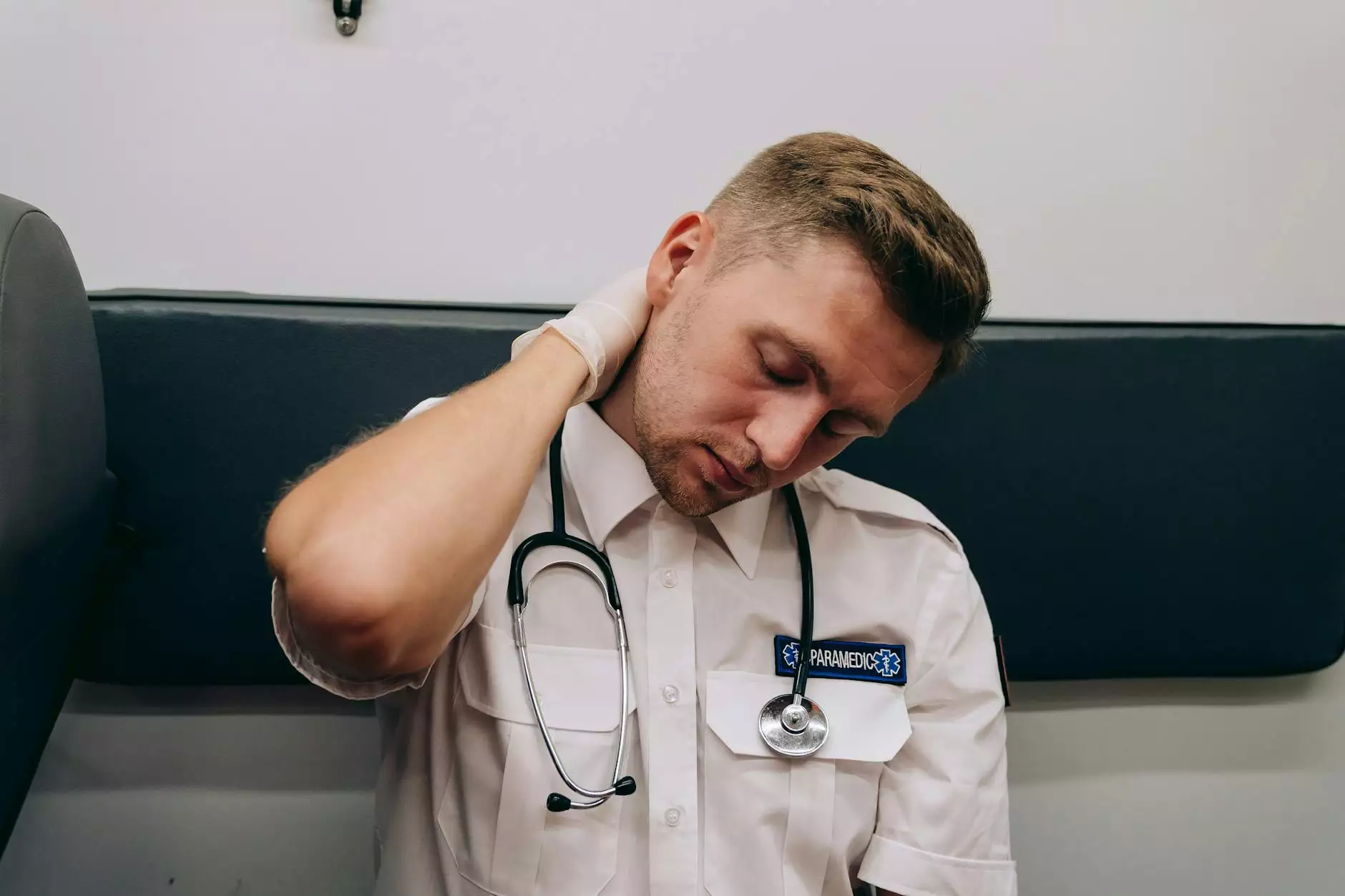Understanding the Role of a Lung Specialist in Health and Wellness

When it comes to maintaining a healthy lifestyle, our lungs play a crucial role. They are essential for breathing, providing oxygen to the body, and removing carbon dioxide. However, many people overlook the importance of seeking professional help when experiencing respiratory issues. This is where the expertise of a lung specialist becomes invaluable.
What is a Lung Specialist?
A lung specialist, or pulmonologist, is a medical doctor who specializes in diagnosing and treating conditions related to the respiratory system. This includes diseases of the lungs, airway, and the structures involved in respiration. Some of the common ailments that a lung specialist addresses include:
- Asthma - A chronic disease that inflames and narrows the airways, leading to difficulty breathing.
- Chronic Obstructive Pulmonary Disease (COPD) - A progressive disease that causes breathing difficulties.
- Interstitial Lung Disease - A group of disorders causing scarring (fibrosis) of the lungs.
- Lung Cancer - A type of cancer that begins in the lungs and can spread to other parts of the body.
- Sleep Apnea - A serious sleep disorder in which breathing repeatedly stops and starts.
The Importance of Lung Specialists in Health & Medical Fields
In the health and medical sector, the role of a lung specialist is critical. They work closely with primary care physicians to provide comprehensive care for patients with respiratory issues. Here’s how they contribute:
1. Expert Diagnosis
A lung specialist employs advanced diagnostic tools and methodologies to evaluate a patient’s respiratory health. This includes:
- Pulmonary Function Tests (PFTs) - To assess lung capacity and efficiency.
- Imaging Tests - Such as X-rays and CT scans to visualize lung structures.
- Bronchoscopy - A procedure that allows physicians to view the airways and collect tissue samples.
2. Tailored Treatment Plans
Once diagnosed, lung specialists create personalized treatment plans based on each patient’s unique needs. These plans may include:
- Medications - Such as bronchodilators and corticosteroids to manage symptoms.
- Therapies - Including pulmonary rehabilitation to help improve lung function.
- Surgical Options - For severe cases, like lung surgery or transplantation.
The Role of Lung Specialists in Sports Medicine
In the realm of sports medicine, lung specialists are essential in optimizing athletes' respiratory performance. They offer services such as:
1. Performance Assessments
Understanding how lung function affects athletic performance is crucial. A lung specialist can evaluate an athlete's breathing efficiency and endurance, assisting coaches and trainers in developing training regimens that enhance performance.
2. Injury Prevention
Lung specialists identify risk factors for respiratory injuries, especially in high-performance sports, where athletes may be exposed to environmental pollutants or extreme conditions. Their insights help in crafting safe training environments and strategies to prevent conditions such as exercise-induced bronchoconstriction.
3. Rehabilitation Post-Injury
Post-injury, a lung specialist collaborates with sports medicine teams to implement rehabilitation plans that ensure a safe return to peak athletic performance while addressing any underlying lung issues that may have developed.
Physical Therapy and Lung Health
Physical therapy plays an integral role in enhancing lung health. Lung specialists often work in tandem with physical therapists to:
1. Develop Breathing Techniques
Therapists teach patients effective breathing techniques that can enhance lung capacity and improve oxygen intake. Techniques like diaphragmatic breathing and pursed-lip breathing can be incredibly beneficial for individuals with lung conditions.
2. Strengthen Respiratory Muscles
Physical therapists design specific exercises aimed at strengthening the muscles involved in breathing, which can significantly improve lung function and quality of life for patients.
3. Enhance Overall Physical Fitness
Improved physical fitness through tailored exercise plans can lead to better lung function, especially in individuals with chronic respiratory conditions.
Prevention and Health Promotion
Lung specialists not only treat existing conditions but also focus on prevention and health promotion. This includes:
1. Smoking Cessation Programs
Given the established link between smoking and lung disease, lung specialists often provide or collaborate with programs aimed at helping individuals quit smoking – a crucial step toward lung health.
2. Vaccinations
Lung specialists can recommend necessary vaccinations against respiratory infections, such as the flu and pneumonia vaccines, to protect vulnerable populations.
3. Awareness Campaigns
They engage in community outreach to raise awareness about respiratory health, encouraging proactive measures such as regular check-ups and early intervention for lung-related issues.
Collaborating for Comprehensive Lung Care
The complexity of lung diseases requires a multidisciplinary approach for effective treatment and management. A lung specialist coordinates with various healthcare providers, including:
- General Practitioners - For overall health assessments and referrals.
- Allergists - To manage allergic reactions that can impact lung health.
- Oncologists - For patients battling lung cancer.
- Physical Therapists - To aid in recovery and improve functional capacity.
- Nutritionists - To optimize health through diet, which can complement lung function.
Conclusion
In conclusion, the role of a lung specialist is pivotal in maintaining optimal respiratory health and enhancing the quality of life for patients. Their expertise not only helps patients manage existing conditions but also lays the foundation for prevention and health promotion. As healthcare continues to evolve, the importance of specialists in diverse areas such as health, sports medicine, and physical therapy becomes increasingly apparent. It is essential for individuals to be proactive about their lung health, seek expert advice, and adhere to treatment plans for a healthier future.









